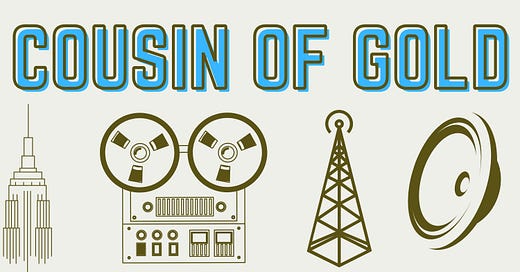In Cousin of Gold Episode 3, I share how amateur radio can help build and strengthen technical and team-collaboration skills. Amateur radio exploration provides hands-on experience with electronics, software, logistics and communication, developing essential skills across engineering and technical paths.
Grasping Electronics and Circuitry
Amateur radio involves working with electronic components and systems, offering a practical understanding of electronics and circuitry. Building and repairing radio equipment teaches key concepts such as Ohm’s Law, signal propagation, and circuit design. This hands-on experience is crucial for aspiring electrical engineers and technicians, fostering skills in diagnosing and troubleshooting electronic issues.
Learning Communication Systems
Amateur radio is all about communication, using various modes like voice, digital, and Morse code. This practice provides a solid grasp of radio frequency (RF) technology, modulation, bandwidth, and signal processing. These principles are vital for careers in telecommunications, networking, and broadcast engineering.
Enhancing Problem-Solving Skills
Amateur radio often presents technical challenges, requiring creative problem-solving and critical thinking. Whether optimizing antenna placement or fixing a transmitter, hams develop analytical skills and perseverance. These traits are essential for engineers and technicians who solve complex technical problems daily.
Gaining Hands-On Tool Experience
Ham radio operators use a variety of tools, such as soldering irons, multimeters, and oscilloscopes. Familiarity with these tools provides practical skills in equipment handling and maintenance, directly applicable to many technical roles.
Building a Network and Collaborating
The amateur radio community is collaborative and offers extensive networking opportunities. Participating in clubs, contests, and public service events helps develop interpersonal skills and provides chances to learn from experienced operators. Networking can lead to mentorships, internships, and job opportunities in technical fields.
Understanding Regulations and Safety
Operating an amateur radio station requires knowledge of FCC regulations and adherence to safety practices. This regulatory awareness and commitment to safety are crucial in engineering and technical professions, where compliance with standards is mandatory.
Preparing for Advanced Education and Careers
The skills and knowledge gained from amateur radio can serve as a strong foundation for advanced education. Many hams pursue degrees in electrical engineering, telecommunications, and computer science, where their amateur radio experience gives them a distinct advantage. These skills can significantly enhance academic performance and career prospects.
Conclusion
Amateur radio is a powerful educational tool for building a foundation in electronics, communication systems, and technical problem-solving. Engaging with amateur radio helps develop a robust skill set applicable to engineering and technical careers. Whether you’re a student or a professional looking to deepen your technical expertise, amateur radio offers a unique and enriching way to build a solid foundation for your future.













Share this post